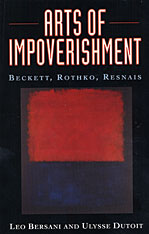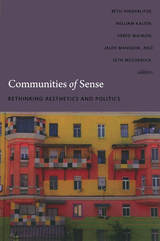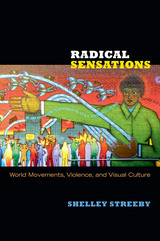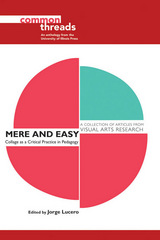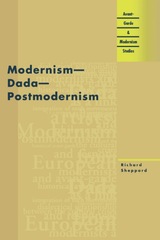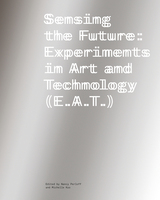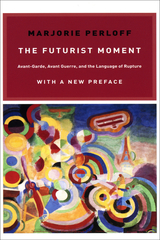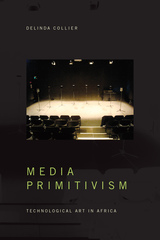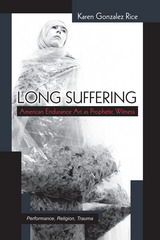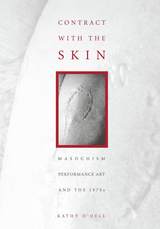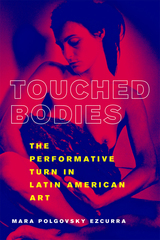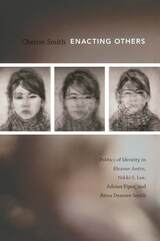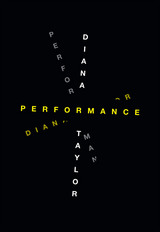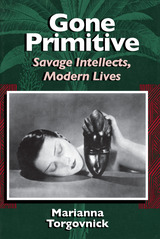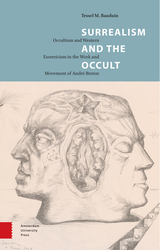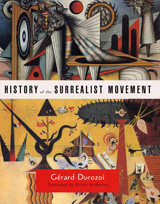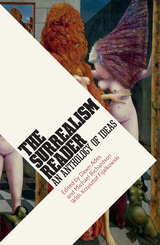The Aesthetics of Disturbance: Anti-Art in Avant-Garde Drama
University of Michigan Press, 1995
Cloth: 978-0-472-10507-6
Library of Congress Classification NX456.5.M64G73 1995
Dewey Decimal Classification 700.1
Cloth: 978-0-472-10507-6
Library of Congress Classification NX456.5.M64G73 1995
Dewey Decimal Classification 700.1
ABOUT THIS BOOK | AUTHOR BIOGRAPHY | REQUEST ACCESSIBLE FILE
ABOUT THIS BOOK
The wild innovations of the early twentieth-century avant-garde have been widely celebrated for their influence on the course of experimental drama but rarely examined closely and systematically. Through an exploration of the plays from Germany, France, and England, The Aesthetics of Disturbance discusses modernism and the avant-garde, the relationship of drama to art movements such as expressionism, dada, and surrealism, and the interactions of visual, literary, and performance art.
Beginning with a survey of the history and theory of avant- garde art, David Graver critically juxtaposes important competing interpretations of the avant-garde, establishes basic distinctions between forms of avant-garde art, compares the aesthetic interests of the avant- garde to those of modernism, and discusses the relationship between the avant-garde and drama. Then, through close readings of the works of five preeminent avant-garde playwrights and visual artists- Oskar Kokoschka, Gottfried Benn, Raymond Roussel, Roger Vitrac, and Wyndham Lewis- he examines the innovations in dramatic literature carried out by these visionaries and finally relates them to the innovations in theater articulated by Brecht and Artaud. Graver argues that anti-art principles, most noticeable in the confrontational tactics of dada performance, can also be found within literary dramatic texts, where they create an "aesthetics of disturbance" that destabilizes the integrity of the work without allowing it to self-destruct.
"A corrective to the oft-repeated, over-simple idea that anti-art consists of the same destructive gesture repeated in different forms. This is a useful book that fills a gap, both conceptually and in terms of the figures discussed." --Philip Auslander, Georgia Institute of Technology
"Original, important, well- done."--Anthony Kubiak, Harvard University
David Graver is Assistant Professor of English and Comparative Literature, Columbia University.
Beginning with a survey of the history and theory of avant- garde art, David Graver critically juxtaposes important competing interpretations of the avant-garde, establishes basic distinctions between forms of avant-garde art, compares the aesthetic interests of the avant- garde to those of modernism, and discusses the relationship between the avant-garde and drama. Then, through close readings of the works of five preeminent avant-garde playwrights and visual artists- Oskar Kokoschka, Gottfried Benn, Raymond Roussel, Roger Vitrac, and Wyndham Lewis- he examines the innovations in dramatic literature carried out by these visionaries and finally relates them to the innovations in theater articulated by Brecht and Artaud. Graver argues that anti-art principles, most noticeable in the confrontational tactics of dada performance, can also be found within literary dramatic texts, where they create an "aesthetics of disturbance" that destabilizes the integrity of the work without allowing it to self-destruct.
"A corrective to the oft-repeated, over-simple idea that anti-art consists of the same destructive gesture repeated in different forms. This is a useful book that fills a gap, both conceptually and in terms of the figures discussed." --Philip Auslander, Georgia Institute of Technology
"Original, important, well- done."--Anthony Kubiak, Harvard University
David Graver is Assistant Professor of English and Comparative Literature, Columbia University.
See other books on: Aesthetics | Arts, Modern | Avant-garde (Aesthetics) | Modernism (Art) | Ut pictura poesis (Aesthetics)
See other titles from University of Michigan Press


